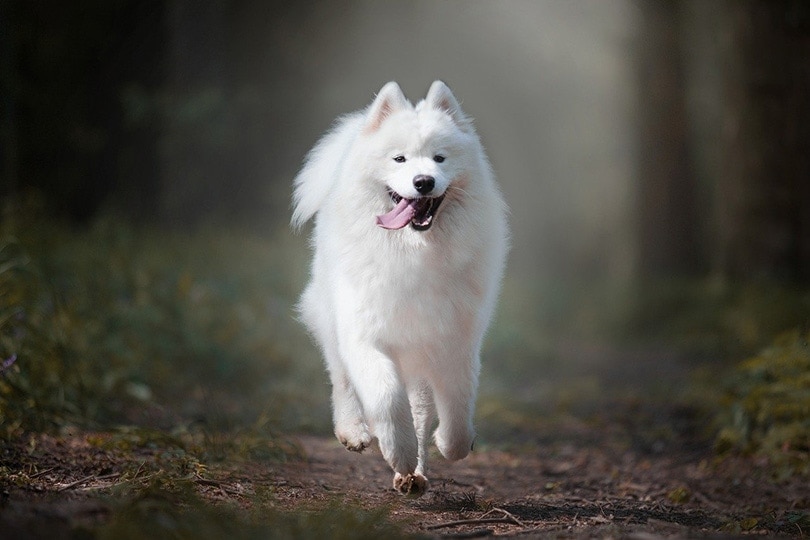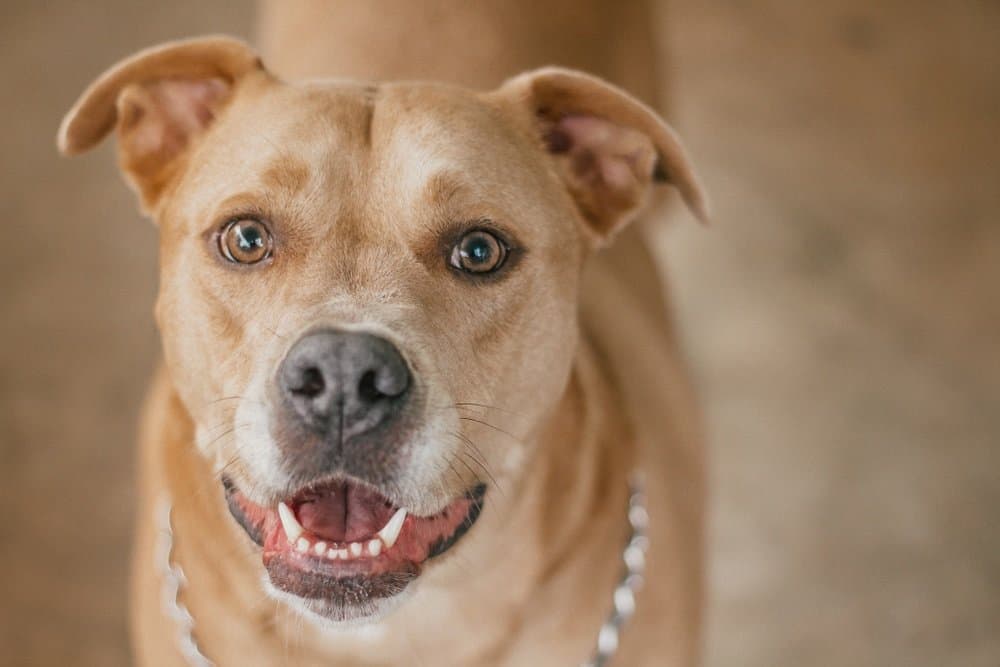6 Most Popular Dog Breeds in North Carolina: 2024 Update (With Pictures)
Updated on
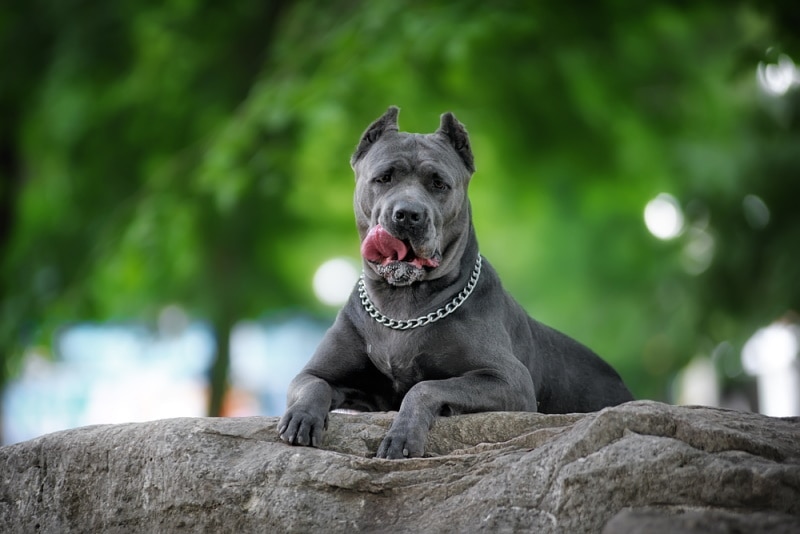
If you’ve lived in or even visited North Carolina for any length of time, you know what a gorgeous state it is. In fact, it’s the 9th most populated state in America, and according to statistics, at least 41% of the people living in the state have at least one dog.
Not only can you see the residents out walking their furry friends, but there are also plenty of dog parks, dog-friendly restaurants, and other dog-friendly establishments for you to take your canine pal to, so you don’t have to leave your dog home alone.
Like other states, North Carolina residents have breeds that are their favorite, and you may be surprised by the top six. We’ll discuss the state’s six most popular canines below, and we’ve included information on each dog’s weight, life expectancy, and height.
The 6 Most Popular Dog Breeds in North Carolina
1. Cane Corso
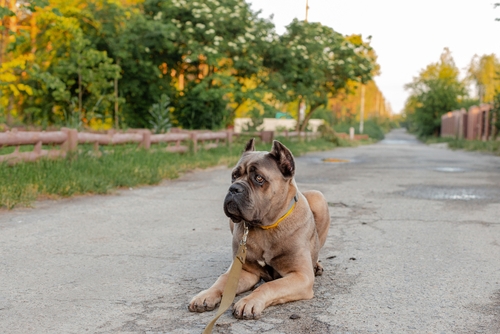
| Weight | 88 to 110 pounds |
| Life Expectancy | 10 to 12 years |
| Height | 23 to 28 inches |
The Cane Corso has been named the most popular dog in North Carolina. The large, majestic canine makes a loyal companion. They’re excellent watchdogs that are very protective of their owners. The Cane Corso has accounted for over 1.3 million online searches in North Carolina, Virginia, Tennessee, and South Carolina in the last year, and their popularity is clearly rising.If you’re looking for a loyal pup that will protect you and your family, the Cane Corso is an ideal choice. With the proper training and socialization, they make good family pets. It’s best to start training them when they are puppies for the best results.
2. Goldendoodle

| Weight | 41 to 51 pounds |
| Life Expectancy | 10 to 15 years |
| Height | 13 to 24 inches |
The Goldendoodle is also one of the most popular dogs in North Carolina. This is a lovable, adorable mixed breed, which is a crossbreed between a Labrador Retriever and a Poodle. They make great family pets, and they are athletic, love to play, and are quite intelligent.
The size of the Goldendoodle varies, depending on whether they’re bred with standard, toy, or miniature Poodles. They’re ideal for allergy sufferers since they rarely shed, but if they inherit the Poodle’s curly coat, they need daily brushing and monthly haircuts.
3. French Bulldog
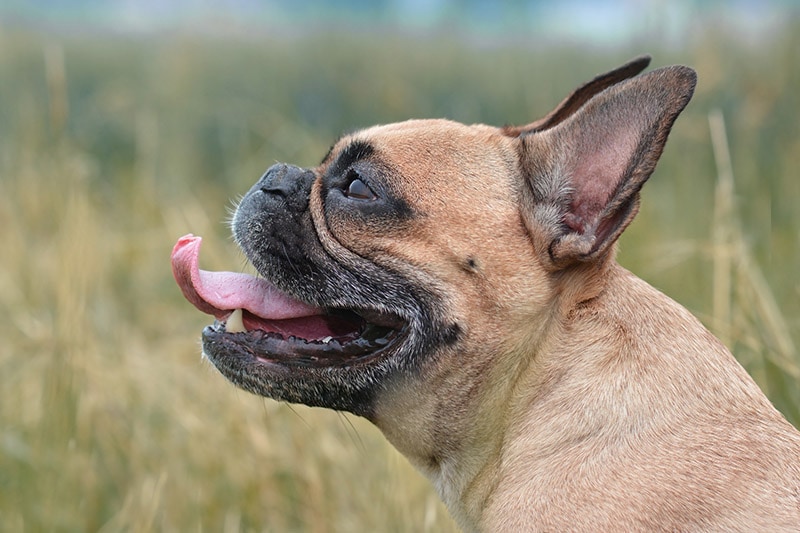
| Weight | 16 to 28 pounds |
| Life Expectancy | 10 to 12 years |
| Height | 11 to 13 inches |
Another dog you’ll see at the dog parks in North Carolina quite a bit is the French Bulldog. They are bright, playful, and sociable and make excellent pets. Frenchies are the top dogs in the United States, and although they’re in third place in North Carolina, their popularity is growing.
If you’re living in an urban area, the French Bulldog makes the perfect apartment dog. They’re not as energetic as other small canines, but they need daily exercise to keep them healthy and happy.
4. Poodle
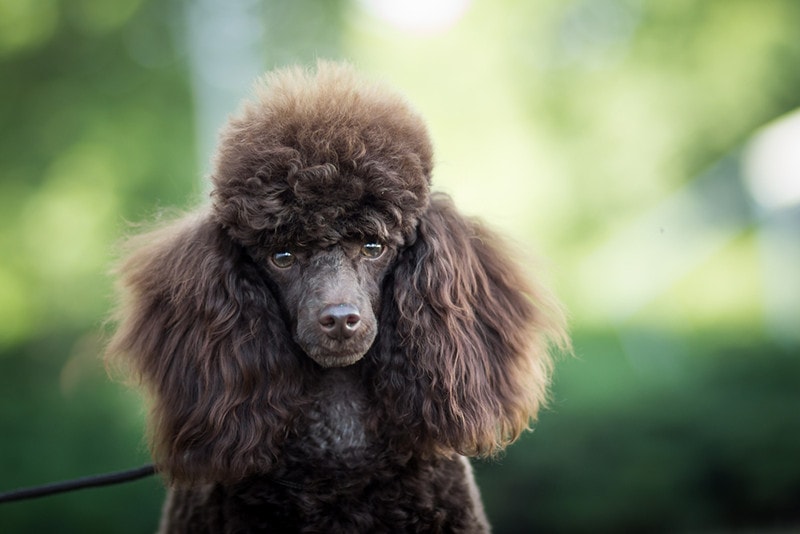
| Weight | According to type |
| Life Expectancy | 12 to 15 years |
| Height | According to type |
The Poodle is also a very popular dog in North Carolina. They are one of the most intelligent dogs in the canine world, and because of their early history of retrieving waterfowl, they’re accustomed to working closely with humans. You can adopt a standard, toy, or miniature Poodle, but regardless of the dog’s size, you’ll have a loving pet that never leaves your side.
Since the residents of North Carolina love the breed so much, there are many Poodle crossbreeds throughout the state, such as the Goldendoodle, Labradoodle, and Cockapoo.
5. Yorkshire Terrier
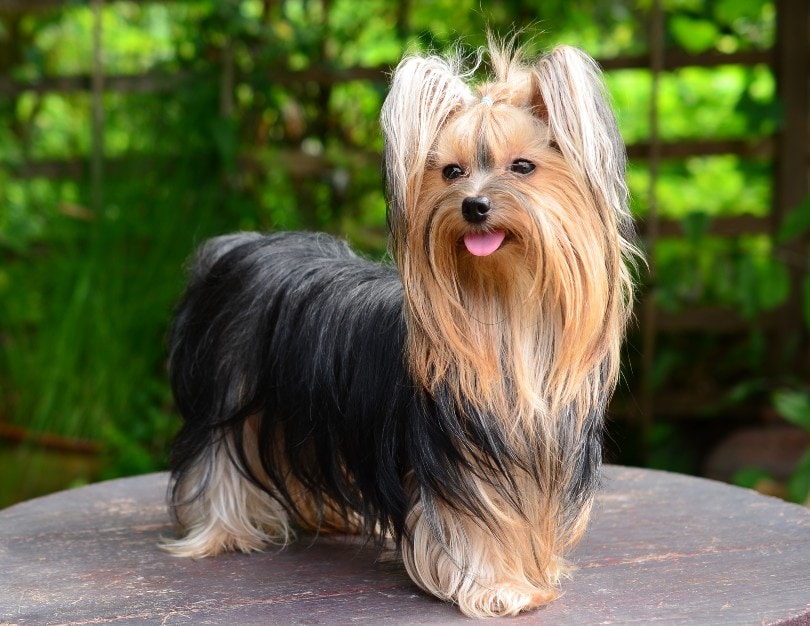
| Weight | 4 to 7 pounds |
| Life Expectancy | 13 to 16 years |
| Height | 8 to 9 inches |
The Yorkshire Terrier is the tiniest dog on our list of the most popular dog breeds. Yorkies only weigh between 4 and 7 pounds and grow up to 9 inches tall, making them the perfect apartment pet.
Although they’re small, they’re full of energy and protective of their families. Unlike many small canines, they make excellent watchdogs, but early training and socialization are vital to keep them well-behaved around visitors. They make great pets for families with older children, but since they have herding in their blood, some have issues with herding young kids and pets.
6. Labrador Retriever
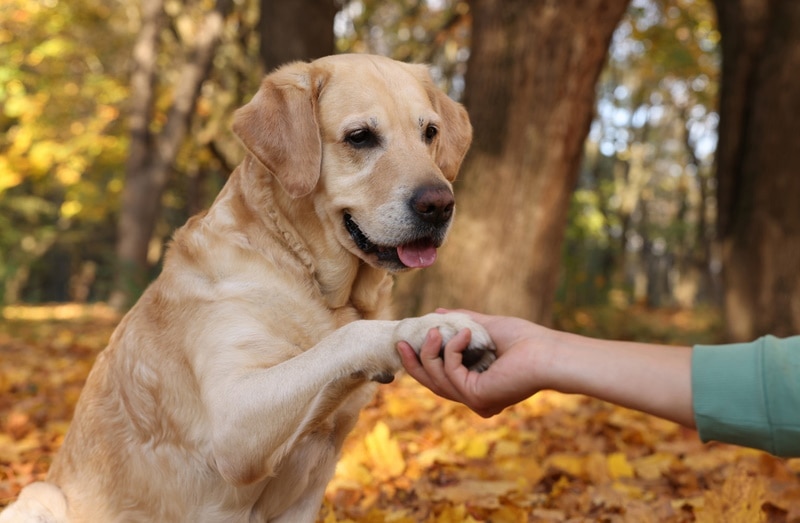
| Weight | 55 to 71 pounds |
| Life Expectancy | 10 to 12 years |
| Height | 22 to 24 inches |
The Labrador Retriever is a very popular pet in North Carolina, and they are also the most registered breed with the AKC. Not only is the Lab a loving companion, but they were also bred to be working dogs, which means they are a quite versatile breed that will make the perfect companion for almost any North Carolina family.
Although they can live in apartments if they receive plenty of daily exercise, they’re better suited for families with large backyards. They love running and playing games with their owners, and they also excel at canine sports.
Conclusion
North Carolina’s top dogs include most of the country’s favorite pets, with the exception of the Cane Corso. Although the dogs we discussed make excellent companions for loving families, each breed has unique care requirements that owners must be aware of. For instance, the French Bulldog is more sensitive to extreme temperatures and cannot spend much time in boiling or freezing temperatures, and Poodles need frequent haircuts and daily brushing to keep their coats healthy.
See Also:
Featured Image Credit: Kseniia Kolesnikova, Shutterstock

